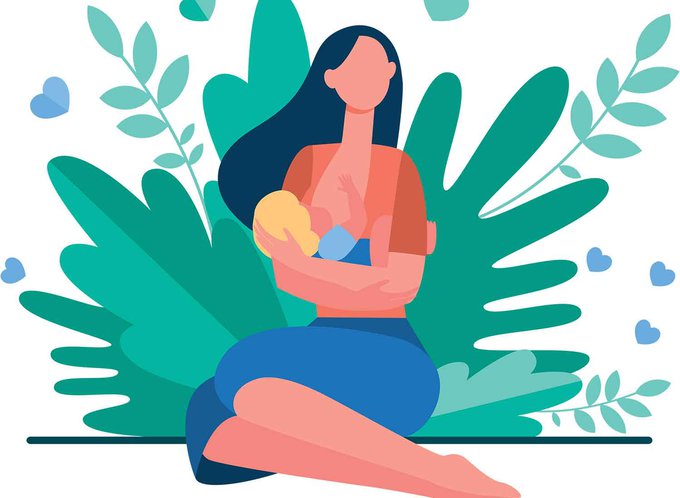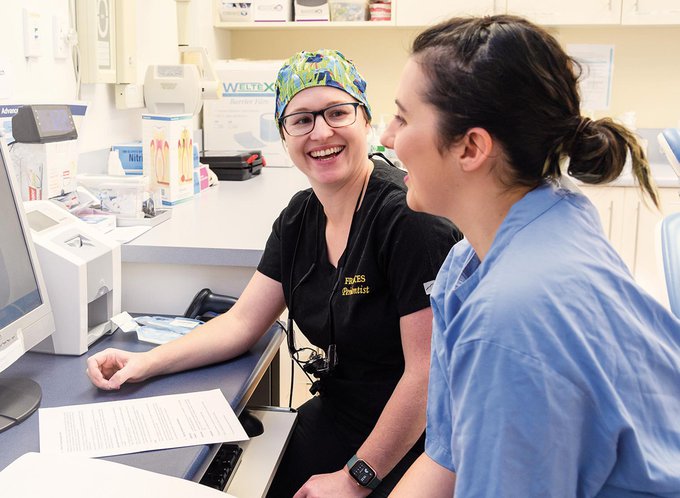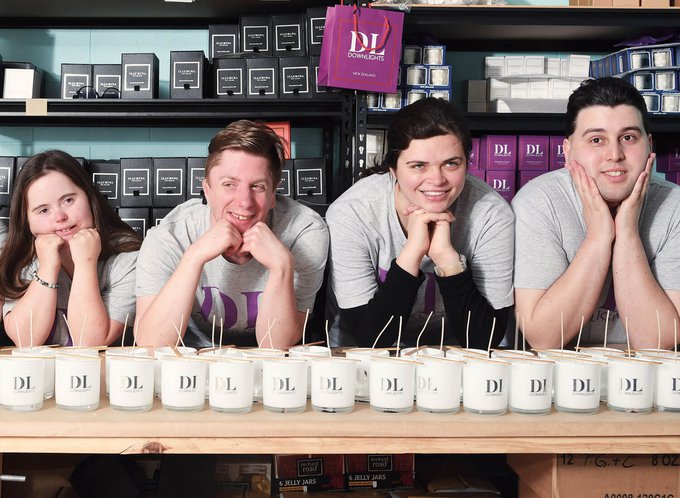The MAS Foundation is breaking with convention as it appoints joint leaders and launches a community-first Te Tiriti o Waitangi partnership approach to health equity.
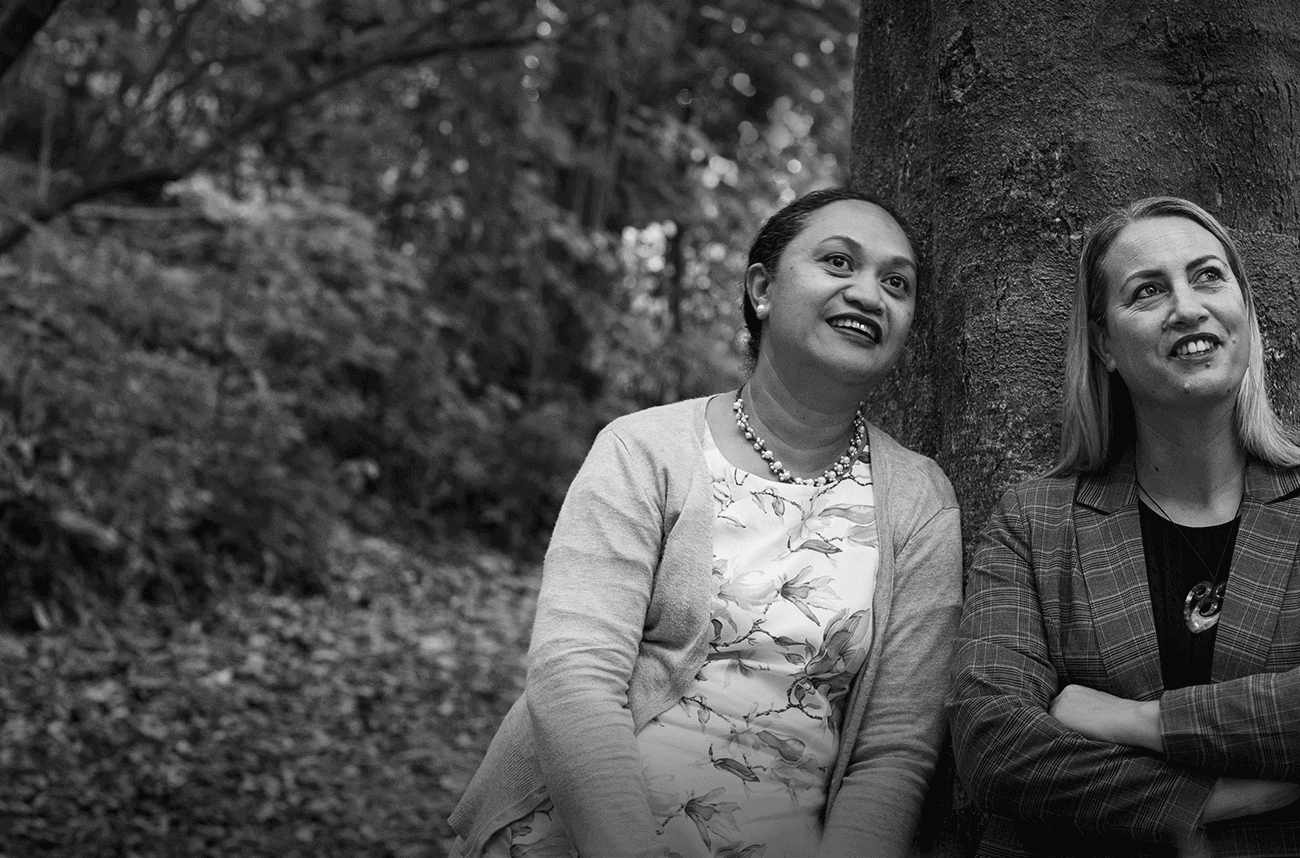
Mafi Funaki-Tahifote (left) and Dr Julie Wharewera-Mika
The MAS Foundation has welcomed its new Heads of Foundation, Dr Julie Wharawera-Mika and Mafi Funaki-Tahifote, who are looking to maximise the impact of the one-year-old charity's investments to improve health equity in Aotearoa.
Julie and Mafi were both emotional when sharing their journeys to come on board as Heads of Foundation and agree that there's a sense of fate to their collaboration.
"It's about serving my community"
After their individual interviews for the Head of Foundation role, the MAS Foundation Board saw the potential of a co-leadership model and asked them to make a joint presentation outlining how they could work together.
Within minutes of their initial phone chat, they worked out that their sons, both second-year medical students, were close friends. Then, when they got together to compare their initial interview presentations, they realised the themes and their values were nearly identical.
Julie (Ngāti Awa, Ngāi Tūhoe, Te Whānau-ā-Apanui and Dutch descent) has a doctorate in clinical psychology from The University of Auckland and has extensive experience as a senior clinical psychologist with her own kaupapa Māori clinical practice Manu Ārahi. She has widespread governance experience including serving as a board member for the Initial Mental Health and Wellbeing Commission and as a kaupapa Māori researcher currently completing her postdoctoral clinical research fellowship with Brain Research NZ.
"Mafi and I both talked about our cultural values, beliefs and personal experiences – how they influenced us as people and how we work and operate. We both spoke about the importance of addressing inequity for our people and how we've been sadly impacted by inequity."
"And when I say this, I'm not talking about an issue for some other community – I'm talking about my own whānau. I don't see this as a job but as a super-intentional commitment. It's about serving my community.
"I think about the whakatauki – 'He toa kei kōkiri – hei hāpai i te oranga o te iwi’, which is about championing the cause for the wellbeing of the people."
Dr Julie Wharawera-Mika
Mafi, who is Tongan, is one of the few registered dietitians in the country with an MBA, from The University of Auckland, and has over two decades of experience in public health and Pasifika community health, including her most recent role as Manager Pacific Health at the National Heart Foundation of New Zealand. She has worked extensively with Pasifika communities on how food plays a role in long-term health conditions, particularly heart health, among other lifestyle improvement initiatives.
As a Pasifika woman, Mafi says she's heard a lot of "doom and gloom" in her career, especially regarding issues that are "very preventable", so she's pleased to be in a role that's dedicated to alleviating Aotearoa's chronic healthcare issues.
She says these issues are often systemic so require systemic solutions that involve government, organisations and community groups, rather than always pointing to individuals.
Both Julie and Mafi are determined to prove that the Te Tiriti partnership leadership model can maximise the MAS Foundation's impact and bring out their best as Māori and Pasifika wāhine.
Julie says it's a partnership where "we build upon and complement each other's strengths, and where either of us has limitations, we seek the support of the other".
"Mafi brings widespread community connections with Pasifika people and extensive networks in the physical wellbeing space, including the Heart Foundation. I come with decades of experience in the mental health and wellbeing space, so we are complementary not only culturally but also in our clinical backgrounds," says Julie.
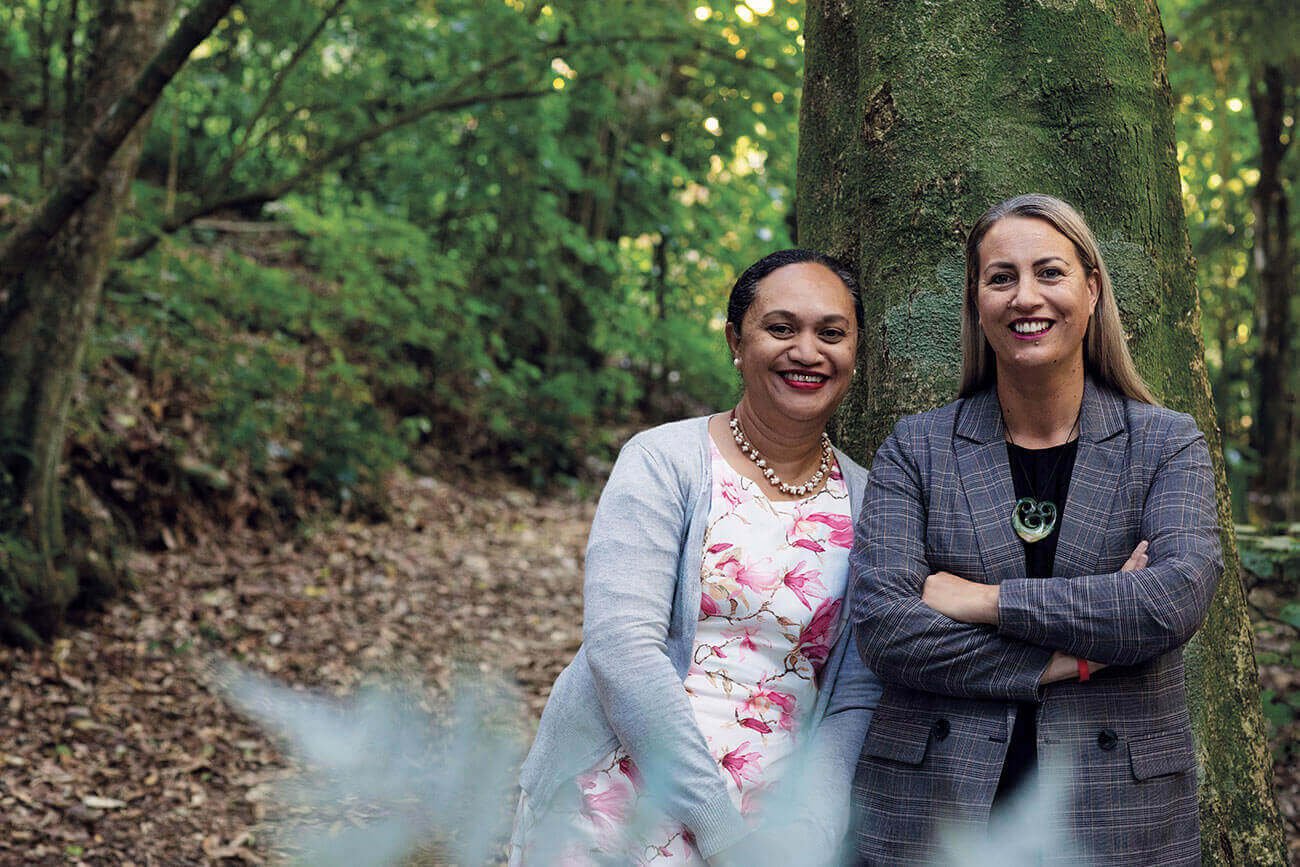
A Te Tiriti-based foundation
The decision to appoint Julie and Mafi as joint Heads of Foundation was influenced by the MAS Foundation Board's commitment to the Te Tiriti o Waitangi partnership model, which places equal emphasis on tangata whenua and tangata tiriti (non-Māori New Zealanders).
Julie says, "I must admit that I've become a bit cynical over the years, because often I hear people talking about Te Tiriti o Waitangi. However, the actions that follow do not reflect the principles you'd expect to see with a genuine partnership and sharing of power.
"But when I saw that the MAS Foundation Board's membership reflected diversity and had already approved an amazing commitment to the principles of Te Tiriti, that was definitely a motivation for me to come on board.
"This is an opportunity for me and Mafi to activate those principles, not only in our partnership but in the way we engage with communities and how we view equity," says Julie.
Mafi was also attracted by the partnership model of health delivery.
"We're working with communities to define their own issues, which makes them more likely to define their own solutions. We haven't necessarily been successful in doing this as a country – if we had been, we might not be facing a lot of the health and social problems that we are now experiencing. But failure, or having an appetite to fail, brings forth innovation. We have the opportunity to try something new now."
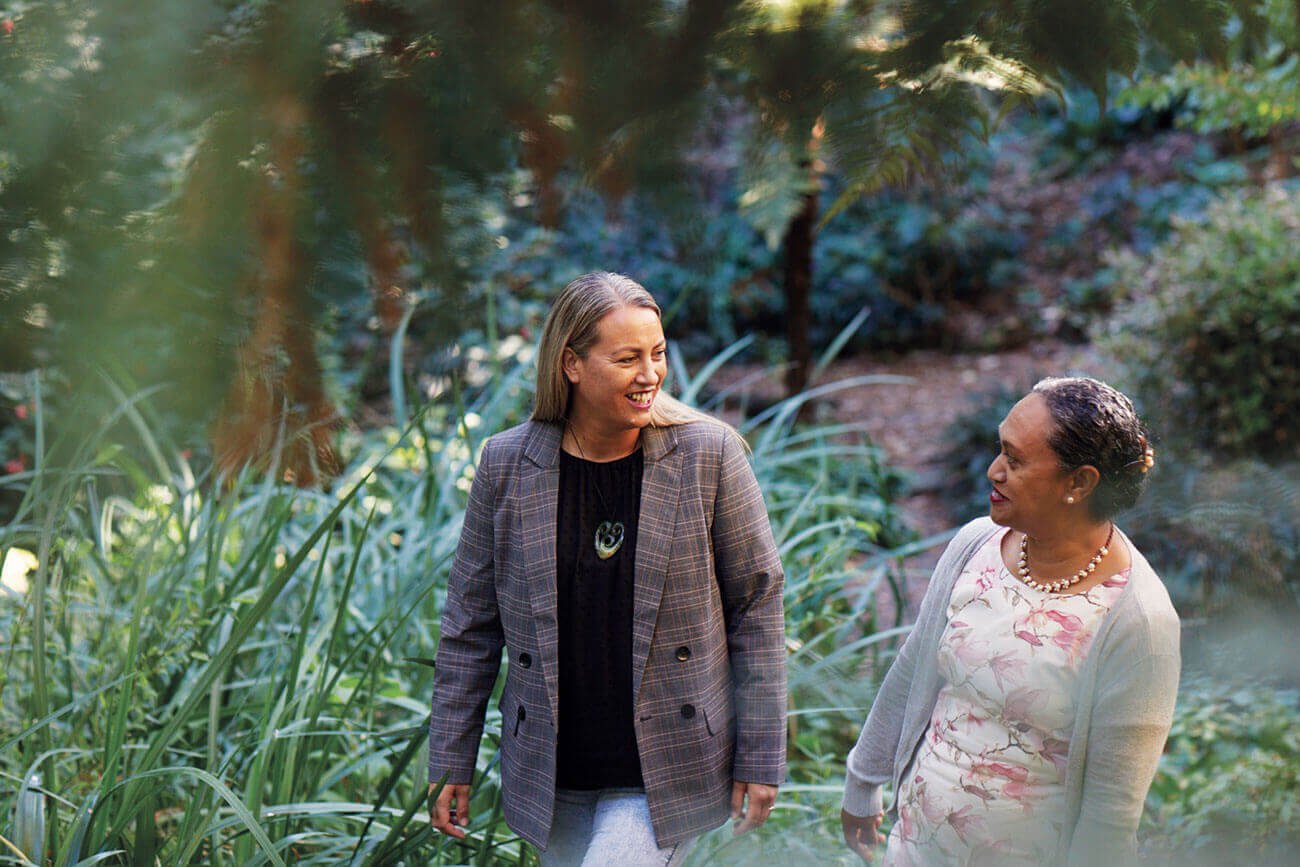
A new approach to philanthropy
The philanthropic field in Aotearoa has a long way to go in terms of diversity. A 2019 report from Philanthropy New Zealand found 85% of philanthropic organisations had a CEO or manager who identified as NZ Pākehā/European, while only 5% had leaders who identified as Māori.
Julie says the MAS Foundation's approach reflects the shift towards community and trust-based processes occurring across the philanthropy sector.
"Traditionally, too many philanthropic organisations stepped into communities without relationships, whereas now I see a big push for developing genuine partnerships and collaborative responses. That's something that Mafi and I prioritise in our roles."
Julie and Mafi agree that improving health equity can't happen without engaging Māori and Pasifika communities and the people who are most impacted by health and wellbeing inequity in Aotearoa.
"This journey is exciting because of how different the approach is and because the MAS Foundation and the trustees have handed over to those most impacted by these issues. There's a lot of willingness and excitement to work alongside and with people rather than at and to people," says Mafi.
Julie agrees that too many health interventions have been unsuccessful because they didn't start with a strong enough connection to the communities they serve.
"To deliver this approach successfully, you really need to get alongside people and empower them to lead their own journey," she says.
Both Julie and Mafi are excited about the MAS Foundation's potential to have a significant impact in Aotearoa and internationally. Mafi draws on an analogy from her Tongan heritage to explain her vision for the Foundation.
"This approach can make Aotearoa the pinnacle for other countries to look at. In my presentation to the Foundation Board when i was applying for this role, I talked about the heilala – the national flower of Tonga and the highest in the heirarchy of Tongan flowers. It's tiny, but gives out a beautiful fragrance".
"When someone is wearing a lei made of the heilala flowers and leaves the room, the fragrance stays in the room. The work of the MAS Foundation, as it grows, will leave that trace and that great reputation everywhere it goes".
Mafi Funaki-Tahifote
Know someone who might enjoy this?
Read this next
-
March 2021
Helping Kiwi babies thrive
-
March 2021
Creating a Deaf-inclusive Aotearoa
-
July 2021
Now I can finally smile
Greater good
See all-
March 2021
Candles for a cause
-
March 2021
Helping Kiwi babies thrive
-
March 2021
Creating a Deaf-inclusive Aotearoa
